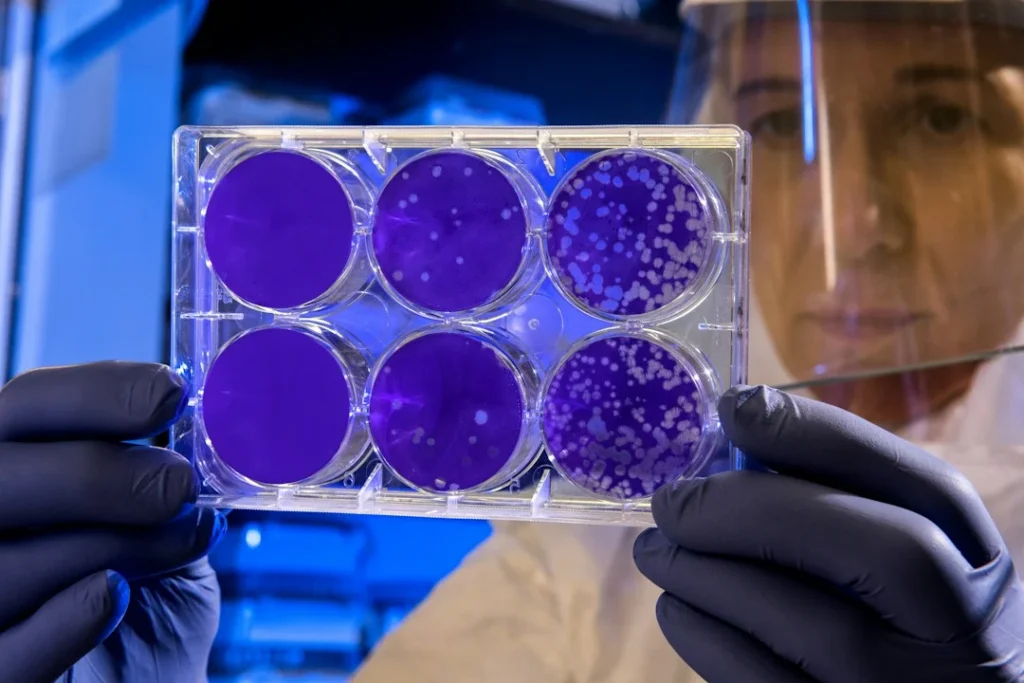The Role of NAD+ in Metabolic Processes and Aging

Known scientifically as Nicotinamide Adenine Dinucleotide, NAD+ is a critical coenzyme found in every single cell of our bodies. It helps power metabolic processes and drastically influences processes such as aging. The discovery of NAD+ and its associated impact on our health has paved the way for numerous possibilities. In this article, we delve deeper into the role of NAD+, its connection to metabolic processes, and the potential it holds within the field of longevity.
Table of Contents
Understanding NAD+ and Its Importance

NAD+ is a coenzyme that plays a pivotal role in cell metabolism, aiding in the conversion of nutrients into cellular energy. This plays an integral part in our overall health and well-being.
Moreover, NAD+ is also instrumental in the regulation of circadian rhythms and DNA repair— fortifying our cellular defense against genetic damage and oxidative stress. It is safe to say, therefore, that NAD+ has an undeniable impact on the inner workings of our bodies.
Interestingly, NAD levels are known to decrease with age, and this depletion is associated with numerous health issues and diseases prevalent in elderly people. This realization has spurred global interest in the potential health benefits of maintaining, or even boosting, NAD levels.
The Connection between NAD+ and Metabolic Processes

Essentially, NAD+ is a catalyst that is vital for the conversion of nutrients into energy. Without it, our cells would be unable to effectively metabolize the food we consume. In addition to energy production, NAD also plays an essential role in protein regulation within our cells.
NAD+ also acts as an antioxidant, protecting the cells in our bodies from harmful free radicals which can cause cell damage. In a nutshell, NAD+ acts as an essential bulwark, shielding our bodies from a multitude of potential cellular damage.
However, while NAD+ plays a vital role in our metabolic processes, the balance is critical. Abnormal NAD+ levels can disrupt normal metabolic function, leading to health problems. Hence, maintaining optimal NAD levels is central to good health.
The Role of NAD+ in Aging and Longevity
The connection between NAD+ and aging is still being researched, but currently, scientists strive to elucidate the correlation between decreased NAD levels and various age-related health issues. They have found that as we age, our bodies produce less NAD, which, in turn, can cause cellular mechanisms to falter. In some cases, these disruptive changes may lead to chronic diseases, including diabetes, neurodegenerative disorders, and heart disease.
Boosting NAD+ levels in older individuals has shown promise in ameliorating these aspects, highlighting the coenzyme’s potential as an anti-aging supplement. The potential of NAD+ in improving age-related health decline is eye-opening. The ongoing research envisages a future where one can maintain a youthful and robust metabolism despite the passage of time.
Mitigating the Effects of Aging with NAD+ Boosters

NAD+ boosters are being investigated as a potential tool to combat aging and its associated diseases. Research has shown that under certain conditions, NAD precursors may prove beneficial in replenishing falling levels.
For example, a dietary supplement called Nicotinamide Riboside (NR) has proven to be an effective NAD+ booster under scientific scrutiny. These studies show that NR can replenish cellular NAD levels, paving the way for the effective management of age-related metabolic decline.
Another NAD+ precursor that appears to hold promise is Nicotinamide Mononucleotide (NMN). Studies on NMN suggest that it, too, could increase NAD+ levels, bolstering cellular metabolism and potentially restoring youthful energy levels in older individuals.
Overall, the importance of NAD+ in our bodies cannot be overstated. It is fundamental to our cellular processes, and its potential role in mitigating the effects of aging is stirring great excitement in the scientific community. As advancements continue, the understanding and implications of NAD+ could potentially transform the way we view age-related decline and longevity.
For more valuable information stay connected


